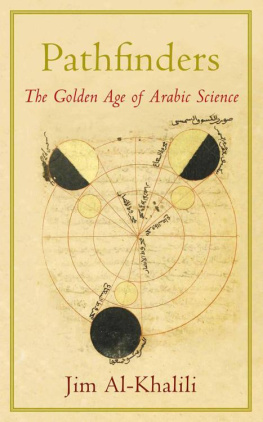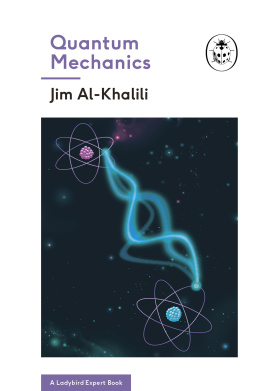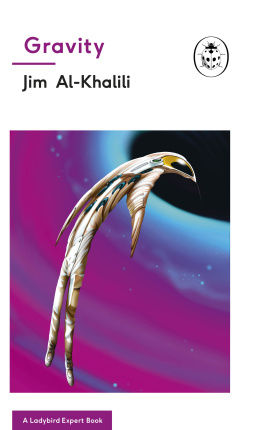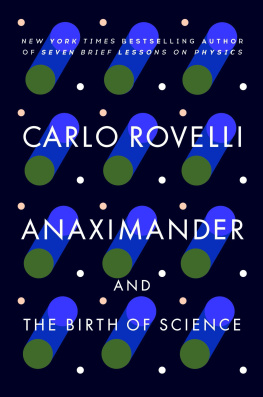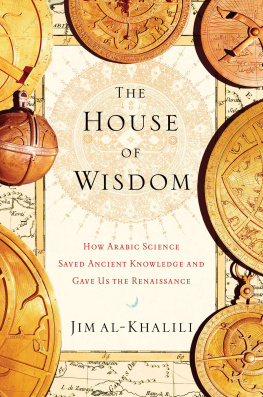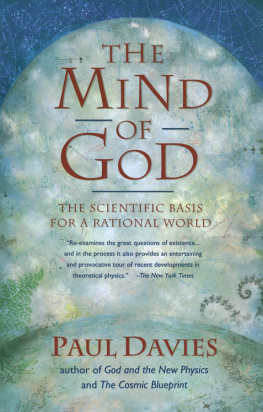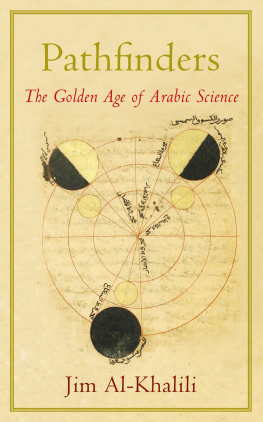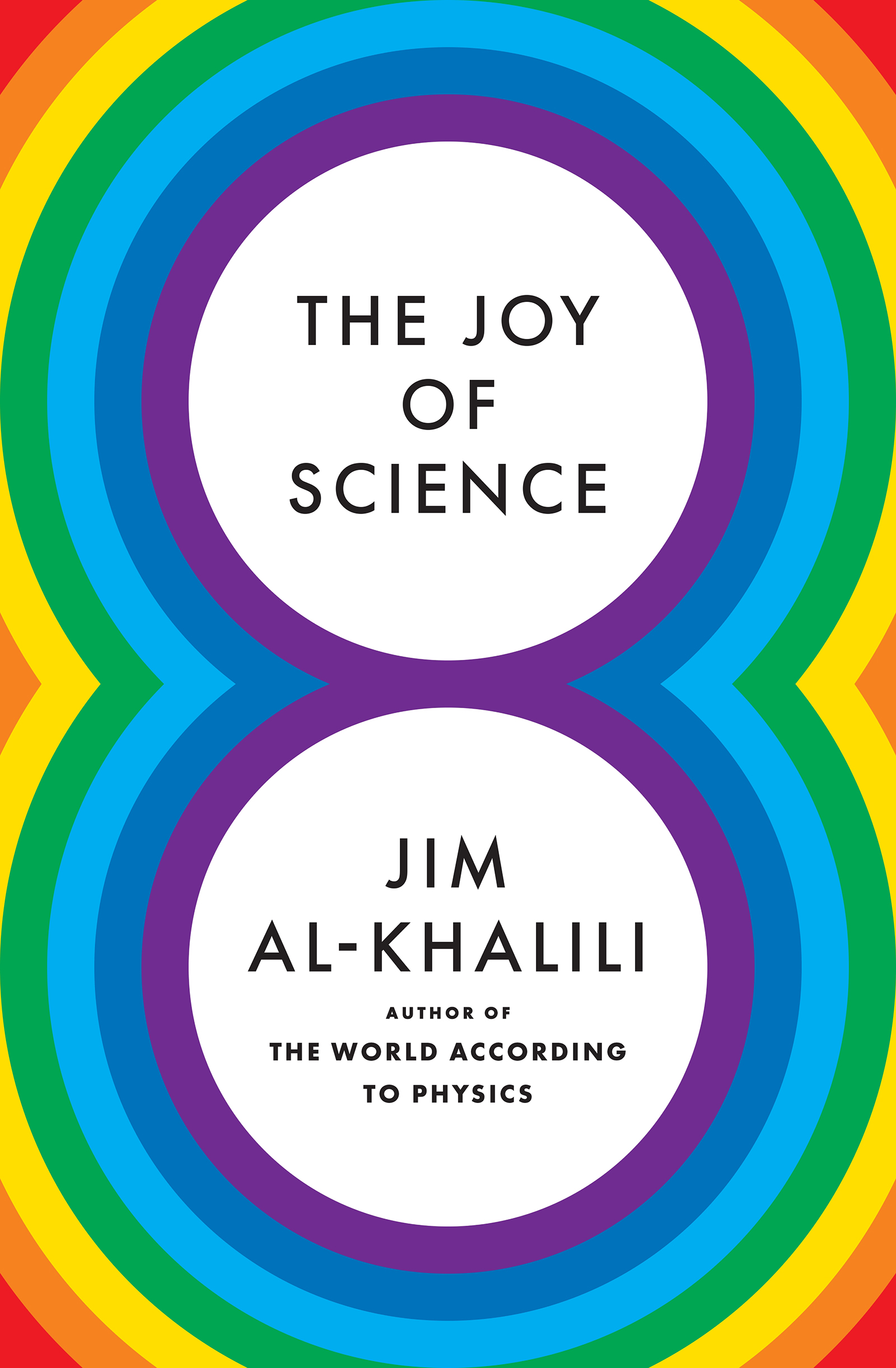Jim Al-Khalili has distilled the very essence of science. This book is packed full of joy, inspiration, and real wisdom.
Alice Roberts, Professor of Public Engagement in Science, University of Birmingham
Jim Al-Khalili eloquently reminds us of all the reasons to celebrate science. A lovely little book that will serve you well as a trusted guide in this troubled post-truth era.
Sabine Hossenfelder, physicist and author of Lost in Math
The Joy of Science pulls back the curtain on the essential nature of science and tackles the confusions the public confronts in understanding how its done. I highly recommend Al-Khalilis book to anyone, scientist or not, interested in thinking more scientifically.
S. James Gates Jr., coauthor of Proving Einstein Right
In the age of post-truth politics, when misinformation and conspiracy theories flood social media and endanger lives, Al-Khalilis book is a patient, gentle, and humane corrective. The Joy of Science is a call for a more rational and discerning attitude to what we experience in our lives, guided by respect for expertise and critical judgement but also by compassion.
Philip Ball, author of Beyond Weird and Curiosity
Jim Al-Khalili is justly celebrated as a leading expositor of science. In this book, he distills the nature and limits of our scientific knowledge and highlights how the scientific mindset can help us in everyday life. His wise precepts are especially welcome at a time when, despite sciences triumphs, public discourse is bedeviled more than ever by fake news and conspiracy theories. Wed all be better citizens if we took his message to heartthis book deserves wide readership.
Martin Rees, author of On the Future
Science is a way of thinking about and understanding the worldand in this captivating book, Al-Khalili argues that we all should be thinking more scientifically. Writing exquisitely about the complexities of scientific concepts and ideas, he uncovers our biases and dispels common myths and misunderstandings about how the world and science works. His highly entertaining book is crucial reading for all of us, especially at this time of global pandemic and climate crisis, when finding solutions depends critically on a deeper understanding of what science is and isnt.
Sarah-Jayne Blakemore, author of Inventing Ourselves
This is a beautiful, straightforward, and readable little book with so much to say about how and why we do science. I recommend it to anyone in these crazy times who wants to understand the meaning and value of following the science.
Daniel M. Altmann, Imperial College London
This pithy and insightful book provides readers with a collection of fun and timely ideas in an accessible way.
Sean Carroll, author of Something Deeply Hidden
Jim Al-Khalilis latest masterpiece beautifully conveys just how profound, intimate, and unique our connection with science is. The Joy of Science awakens the scientific thinking that is deeply rooted in all of us, revealing not only what its methods truly are but also how one can find enlightenment by trying them out.
Claudia de Rham, Imperial College London
Al-Khalilis timely and inspirational writing allows us all to experience a touch of the joy of science.
Helen Pearson, Chief Magazine Editor of Nature
THE JOY OF SCIENCE
THE JOY OF SCIENCE
JIM AL-KHALILI
PRINCETON UNIVERSITY PRESS
PRINCETON AND OXFORD
Copyright 2022 by Jim Al-Khalili
Princeton University Press is committed to the protection of copyright and the intellectual property our authors entrust to us. Copyright promotes the progress and integrity of knowledge. Thank you for supporting free speech and the global exchange of ideas by purchasing an authorized edition of this book. If you wish to reproduce or distribute any part of it in any form, please obtain permission.
Requests for permission to reproduce material from this work should be sent to
Published by Princeton University Press
41 William Street, Princeton, New Jersey 08540
99 Banbury Road, Oxford OX2 6JX
press.princeton.edu
All Rights Reserved
Library of Congress Cataloging-in-Publication Data
Names: Al-Khalili, Jim, 1962- author.
Title: The joy of science / Jim Al-Khalili.
Description: Princeton : Princeton University Press, [2022] | Includes bibliographical references and index.
Identifiers: LCCN 2021029263 (print) | LCCN 2021029264 (ebook) | ISBN 9780691211572 (hardback) | ISBN 9780691235660 (ebook)
Subjects: LCSH: SciencePhilosophy.
Classification: LCC Q175 .A485 2022 (print) | LCC Q175 (ebook) | DDC 501dc23
LC record available at https: / /lccn.loc.gov/2021029263
LC ebook record available at https: / /lccn.loc.gov/2021029264
Version 1.0
British Library Cataloging-in-Publication Data is available
Editorial: Ingrid Gnerlich and Whitney Rauenhorst
Production Editorial: Mark Bellis
Text and Cover Design: Chris Ferrante
Production: Jacquie Poirier
Publicity: Sara Henning-Stout and Kate Farquhar-Thomson
Copyeditor: Annie Gottlieb
For my father
CONTENTS
- ix
PREFACE
As a young student in the mid-1980s, I read a book called To Acknowledge the Wonder by the English physicist Euan Squires. It was about the latest ideas in fundamental physics (at the time), and I still have it somewhere on my shelf nearly four decades later. While some of the material in that book is now outdated, I have always liked its title. At a time when I was contemplating a career in physics, the chance to acknowledge the wonders of the physical world was what really inspired me to devote my life to science.
There are many reasons why people pursue their interests in one subject or another. In science, some enjoy the thrill of climbing into the crater of a volcano or crouching on a cliffs edge to observe birds nestingor looking through telescopes or microscopes to see worlds beyond our senses. Some design ingenious experiments on their laboratory workbenches to reveal the secrets inside stars, or build giant underground particle accelerators to probe the building blocks of matter. Some study the genetics of microbes so they can develop drugs and vaccines to protect us against them. Others become fluent in mathematics and scrawl pages upon pages of abstract but beautiful algebraic equations, or write thousands of lines of code that instruct their supercomputers to simulate Earths weather or the evolution of galaxies, or even model the biological processes inside our bodies. Science is a vast enterprise, and there is inspiration, passion, and wonder everywhere you look.
But the old adage that beauty is in the eye of the beholder applies to science as well as more generally in our lives. What we regard as fascinating or beautiful is highly subjective. Scientists know as well as anyone that new subjects and new ways of thinking can be daunting. When you havent been properly introduced to a subject, it can seem downright forbidding. However, my response would be that, if we try, we can almost always gain a better understanding of an idea or concept that might once have seemed unfathomable to us. We just have to keep our eyes and minds open and take the time we need to think things through and absorb the informationnot necessarily to the level of experts, but just enough to comprehend what we need.


